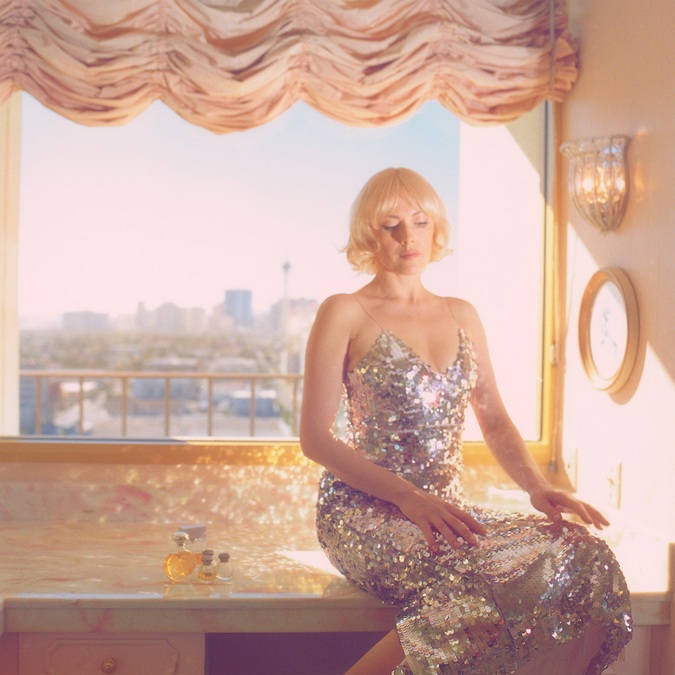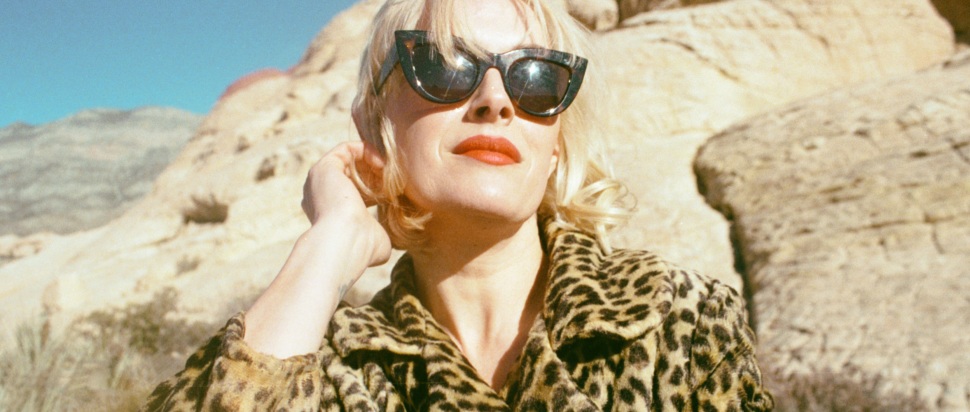The Good Place: Gwenno on Utopia
On her fabulously ambitious fourth solo record, Welsh experimentalist Gwenno revisits her past, and reinvents her present
With each record she makes, Gwenno Saunders continues to find her voice – musically, thematically and, in the most literal sense, linguistically. Her first three albums – including her most recent, the Mercury-nominated Tresor – were sung in either Cornish or Welsh, the languages she inherited from her father and mother, respectively. Those were records that reflected on her childhood and her formative years spent in Cardiff, and she used a blend of pastoral folk and electronic soundscapes to delve deep into her roots, both in Wales and Cornwall. “I wrote Tresor in St. Ives,” she says on a Zoom call, “and I knew I couldn’t write that again. But I needed to write something. Physically, I needed to.”
Accordingly, she set about changing everything. For the first time, she sat down at the piano to write songs, and as she did so, she began to think less about where she was, and more about where she’d been. “That’s how the journey started, and eventually I got to Utopia.” Saunders’ fourth album takes its name from a Las Vegas nightclub, where she’d spend chaotic weekends after moving to the city at the age of 17; a gifted Irish dancer, she’d landed a lead role in a Michael Flatley show. “Thinking back, I realised that was really the start of my adult life; the first time I was in employment, the first time I was away from my parents. For some reason, it’s taken me 20 years to really reflect on that time.”
Utopia represents a thrilling, endlessly creative tour through Saunders’ own psychogeography, starting with the hedonism of her late teens in Vegas and taking us through to Brighton, where she joined indie-pop upstarts The Pipettes in the mid-noughties; and London, a place she’s always had a complicated relationship with. “I was originally going to call the album Were We Ever Really Here?, because there’s a lot of thinking about how little impact we individually have on cities we live in.” Remarkably, for a musician synonymous with electronics, she’s reinvented her sonic palette to include breezy guitars (Dancing on Volcanoes; The Devil), swooning, piano-driven reflections (Utopia; Ghost of You) and, on closer Hireth, gorgeously atmospheric experimental pop, written on the harp.

Utopia album cover
“There were a few reasons for changing it up,” she explains. “I was naturally losing interest in electronic music, and I was curious; I’ve spent a decade using the same tools – synths, drum machines. I wondered whether I could make songs that stand up at the piano. I played some piano shows, and it was so nice to be in a room and connect with people without the need for machines. And I think, in part, it’s a reaction to my fear that technology is ending up in the wrong hands; that’s why we’ve got this threat of AI producing music. I think at this point in time, it’s really, really important to reconnect with older instruments. I’m not being a luddite about it; I just think it’s crucial to think about what music is really about, which is human beings, in a room, making something together. That’s where the nourishment is.”
Perhaps the most crucial aspect of her progression on Utopia, though, is that she’s finally taken to writing in the English language. “It felt high-risk, knowing everybody listening would understand me!” she laughs. “When I write in Welsh, I’m generally pretty political because that language, for me, embodies the idea of surviving, of community, and enduring hardship; that’s naturally where I go in Welsh. And then Cornish is very mystical to me, because there’s only about 500 fluent speakers, and not all of them listen to my music; I can kind of say whatever I want. So it was daunting to move into English, but it’s the language I had those experiences in; in Vegas, and in The Pipettes, who were a very English band. I think I’ve just been exploring English and putting down my own foundations in it – thinking about who I strive to write like. On the song War, I’ve reworked a poem by Edrica Huws, and she writes with a calmness, a concision and a poignancy that I aspire to.”
In the early stages of working on Utopia, Saunders thought it might have been an album about youthful rebellion; of rejecting the culture of her Cornish poet father and Welsh musician mother to head to Vegas and London. In the end, though, she found it was in her nature as a songwriter to offer a utopian vision of her past, focusing on the good, not dwelling on the bad. “Music is celebration, for me," she says. "When I think of the past, I always think, what was the value of that experience? What was the lesson – what was the thing that’s worth sharing? It’s a form of therapy for me – it sounds clichéd, but it’s true.”
Utopia is released on 11 Jul via Heavenly Recordings; Gwenno plays Nice N Sleazy, Glasgow, 4 Nov
